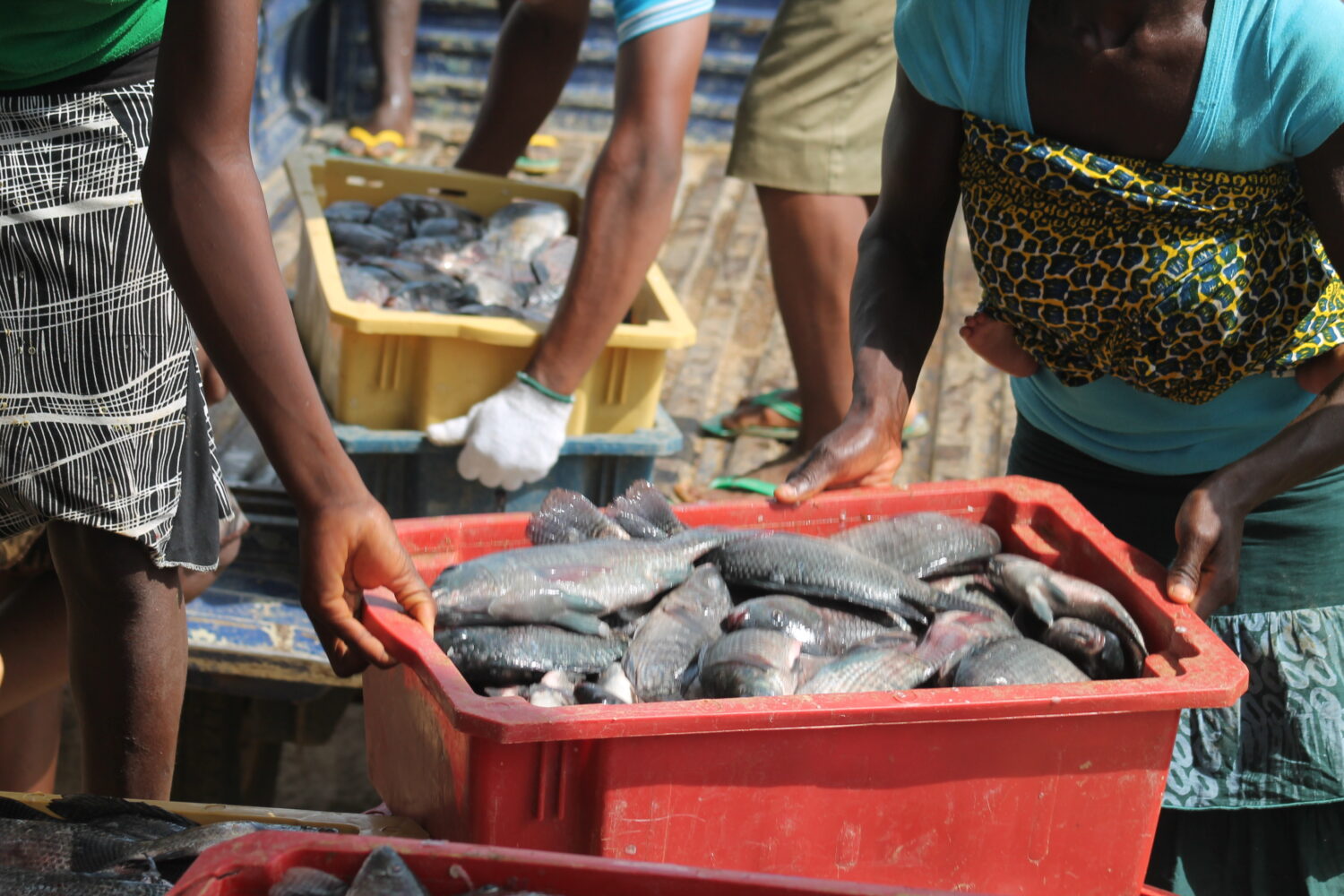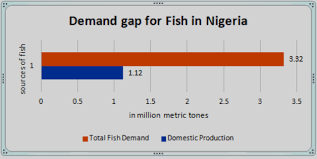
Nigeria’s fish farmers have reinstated their commitment to increase fish production so as to meet the annual national consumption requirement of 3.5 million metric tonnes.
Fish is a source of high-quality protein. Fish is filled with omega-3 fatty acids and vitamins such as D and B2 (riboflavin). It is rich in calcium and phosphorus and a great source of minerals, such as iron, zinc, iodine, magnesium, and potassium.
Nigeria produces around 1 million tonnes of fish annually. Over 750,000 tonnes from capture fisheries and roughly 310,000 tonnes from aquaculture
A variety of species are eaten in Nigeria, including crayfish, sardines (freshwater and saltwater), bonga and mackerel, as well as cultured fish species, such as tilapia, carp and catfish. Food taboos influence fish consumption in Nigeria, especially the dietary behaviors of pregnant women in some groups.
In the southwest of Nigeria and bordering the Atlantic Ocean, Lagos state is among the West African country’s most economically important regions. Despite its location, the state produces only around 40% of the fish required by its population of 22 million.
NFAN reacts
The National Fish Association of Nigeria (NFAN), in a statement issued by its National Publicity Secretary, Chief Chidike Ukoh, called for consolidated efforts between the Federal Ministry of Agriculture and Rural Development (FMARD) and the association, to meet the target.
READ ALSO: Nigeria needs to renegotiate 80% bilateral agreements – NIPC
While congratulating the newly appointed Minister of Agriculture and Rural Development, Dr Mohammed Abubakar, Ukoh expressed the association’s confidence in the ministry to drive the process.
According to Ukoh, activities at the Ministry’s headquarters in the first few days of his appointment had been brisk, instructive and devoid of the usual pomp and pageantry that usually characterised events of that nature.
“We believe this signified his understanding of his brief and a sense of duty to hit the ground running in the field, while celebrations for a bumper harvest will naturally happen at the turn of a successful season.
“NFAN leadership and stakeholders nationwide will continue to work in concert with patriotic citizens to ensure that agriculture, as the foremost sector of the national economy, sustained its positive impact across board.
“We the farmers/industry value chain operators being partners in progress from the private sector are looking to consolidate effective collaboration with the ministry to achieve massive agricultural production, under the watch of the new Minister”, Ukoh said.
He added: “We are committed to redouble efforts in this critical sector for the well-being and survival of fellow citizens against all odds and to serve the overriding need for improved national food security and safety.
“We are also aware and conscious of the fact that the fisheries subsector needs direct public policy inputs, enabling a conducive business environment and funding support for sustainable growth and development.
“We are determined to accelerate local production from the current 1.1 million metrics tonnes to meet the annual national consumption requirement of 3.5 million metric tonnes.
“This will translate to self-sufficiency, increased job creation and opportunities, access to foreign markets and especially, taking advantage of the African Continental Free Trade Area Agreement (ACFTA) window for non-oil export revenue earnings,’’ Ukoh said.


